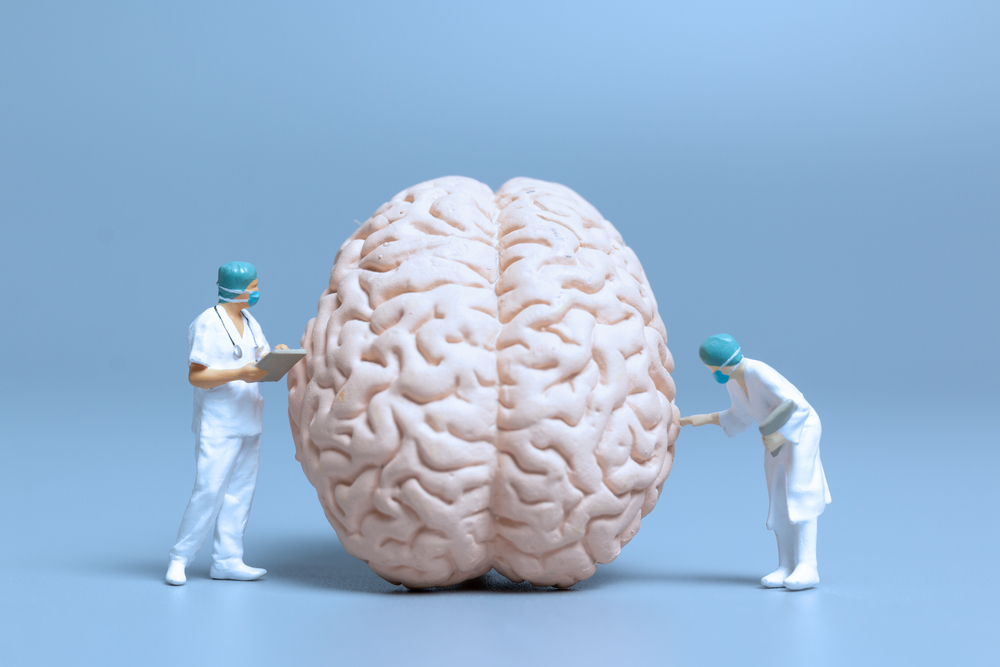Wait, What Was I Saying? Exploring Brain Fog and its Impacts
Author : Dr Tulika | 15 May 2024
Have you ever experienced moments where you feel like your mind is shrouded in a thick fog, making it difficult to concentrate, remember, or think clearly? If so, you're not alone. Many people experience what is commonly referred to as "brain fog," a phenomenon characterized by feelings of mental sluggishness, fatigue, and forgetfulness. In this blog, we'll delve into what brain fog is, what causes it, how it feels, and what steps you can take to manage it effectively.

What is Brain Fog
Brain fog is a term used to describe a state of cognitive dysfunction characterized by confusion, difficulty concentrating, memory problems, and a feeling of mental cloudiness. It can make everyday tasks feel challenging and frustrating, leading to feelings of stress and anxiety. While not a medical condition in itself, brain fog can be a symptom of various underlying issues, both physical and psychological.
Causes of Brain Fog
- Stress: Prolonged periods of stress can overwhelm the brain, impairing its ability to function optimally.
- Lack of Sleep: Sleep deprivation can impair cognitive function and lead to symptoms of brain fog.
- Nutritional Deficiencies: Deficiencies in vitamins such as B12, D, iron, and omega-3 fatty acids can impact brain health and contribute to brain fog.
- Medical Conditions: Underlying medical conditions such as thyroid disorders, autoimmune diseases, and mental health disorders like depression and anxiety can manifest as brain fog.
- Medications: Certain medications may have cognitive side effects that can contribute to brain fog.
What Does Brain Fog Feel Like?
- Difficulty Concentrating: Tasks that usually require focus become challenging, and it's hard to maintain attention.
- Memory Problems: Recalling information or events becomes difficult, leading to forgetfulness.
- Mental Fatigue: Even simple mental tasks feel exhausting, and cognitive energy is depleted quickly.
- Emotional Impact: Brain fog can lead to feelings of frustration, anxiety, and low mood.
Managing Brain Fog
- Prioritize Sleep: Ensure you're getting adequate sleep each night to support cognitive function.
- Manage Stress: Practice stress-reduction techniques such as mindfulness, deep breathing, and relaxation exercises.
- Nutrition: Maintain a balanced diet rich in essential nutrients, including vitamins and omega-3 fatty acids.
- Stay Active: Regular physical activity can improve blood flow to the brain and support overall mental well-being.
- Seek Support: If you suspect an underlying medical or mental health condition, consult a healthcare professional for proper diagnosis and treatment.
Vitamin Deficiencies and Brain Fog
In addition to the previously mentioned factors, certain vitamin deficiencies can also contribute to brain fog. These deficiencies can impact brain function and cognitive performance. Some key vitamins to consider include:
- Vitamin B12: Plays a crucial role in neurological function, and deficiency can lead to symptoms such as fatigue, memory problems, and difficulty concentrating.
- Vitamin D: Known as the "sunshine vitamin," vitamin D deficiency has been linked to cognitive impairment and mood disorders.
- Iron: Essential for oxygen transport in the body, iron deficiency can lead to cognitive deficits, including brain fog and poor concentration.
- Omega-3 Fatty Acids: These fatty acids are vital for brain health and cognitive function. Deficiency may contribute to symptoms of brain fog and mental sluggishness.
Ensuring adequate intake of these vitamins through a balanced diet or supplementation may help alleviate symptoms of brain fog associated with nutritional deficiencies.
How Is Brain Fog Diagnosed?
While brain fog itself is not a medical condition requiring a specific diagnosis, it can often be a symptom of underlying issues that do require attention. When experiencing brain fog, it's essential to consult a healthcare professional for proper evaluation and diagnosis.
During a diagnostic evaluation for brain fog, a healthcare provider may:
- Assess Medical History: Inquire about past and present medical conditions, medications, sleep patterns, stress levels, and dietary habits.
- Physical Examination: Conduct a physical examination to check for signs of underlying medical conditions.
- Blood Tests: Perform blood tests to assess for deficiencies in vitamins, hormones, or other biomarkers that may be contributing to brain fog.
- Mental Health Assessment: Evaluate mental health status to rule out conditions such as depression, anxiety, or cognitive impairment.
By conducting a comprehensive assessment, healthcare providers can identify potential underlying causes of brain fog and develop an appropriate treatment plan tailored to individual needs.
Conclusion
Brain fog is a multifaceted phenomenon that can stem from various factors, including stress, sleep deprivation, nutritional deficiencies, and underlying medical conditions. While it can be challenging to navigate, understanding its causes and seeking proper diagnosis and management strategies are essential steps toward regaining mental clarity and overall well-being.
Whether it's prioritizing sleep, managing stress, addressing nutritional deficiencies, or seeking medical guidance, taking proactive steps to address brain fog can lead to improved cognitive function and a greater sense of vitality and focus in daily life. Remember, you deserve to feel clear-headed and empowered, and with the right support, you can overcome brain fog and thrive.
















